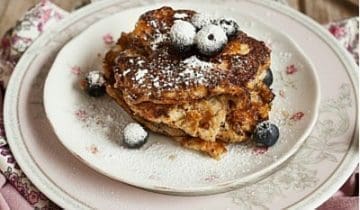With tomorrow being World Digestive Health Day we want to take a closer look at the importance of fibre. Most of us don’t eat enough fibre and understand why we need to include more into our diet and the importance of fibre to our overall health.
What is fibre?
Dietary fibre is a complex carbohydrate found in plant foods which cannot be completely broken down by digestion or absorbed by the small intestine. Instead, it’s broken down inside the large intestine by bacteria for food. (1)
Why is fibre important for your health?
There is strong evidence that including high amounts of dietary fibre into the diet is associated with a lower risk of heart disease, stroke, type 2 diabetes and bowel cancer. (2)
Fibre also helps keep our digestive system healthy by encouraging regular bowel movements thus preventing constipation. (3)
Additionally, foods rich in dietary fibre help keep us feeling fuller for longer.
How much fibre should you include in your diet?
The current recommendation is that adults should eat 30g of fibre a day as part of a healthy balanced diet. (4)
Currently most adults are only eating on average about 20g a day so below are ways to include and increase fibre into your diet:
How to include fibre into your diet
To get enough fibre it is important to include a variety of fibre sources regularly into the diet: (5)
- Wholemeal Bread
Try to choose wholemeal bread instead of white bread as wholemeal bread contains around 7 g of fibre per 100g, white bread provides only 2.9 g of fibre per 100g. (6)
- Fruit and Vegetables
For a number of reasons, you should include a variety of fruit and vegetables into your diet. One being, they are an excellent source of dietary fibre so try to include 5 portions of fruit and vegetables into your every day diet. (7)
- Beans
Lentils and other beans are very high in fibre and are an easy way to sneak fibre into your diet in soups, stews and salads. (8)
- Oats
Oats contain a specific type of fibre – known as beta-glucan, which is a soluble fibre. This fibre can lower cholesterol and blood sugar levels, and increase the growth of good bacteria in the digestive tract. (9)
- Milled Flaxseed
One of the biggest benefits of adding milled flaxseed to your diet is that it’s a fantastic source of dietary fibre. Linwoods Milled Flaxseed with Vitamin D and Bio-Cultures provides 6g of fibre per 20g serving, making it an easy way to increase total fibre intake. Additionally, as our flaxseed is uniquely cold milled this makes the seed even easier to consume whilst retaining all the nutritional benefits contained within the whole seed.
References:
- https://www.hollandandbarrett.com/the-health-hub/food-drink/what-is-fibre/
- https://www.nhs.uk/live-well/eat-well/digestive-health/how-to-get-more-fibre-into-your-diet/
- https://www.nhs.uk/live-well/eat-well/digestive-health/good-foods-to-help-your-digestion/
- https://www.bhf.org.uk/informationsupport/heart-matters-magazine/nutrition/fibre
- https://www.nutrition.org.uk/healthy-sustainable-diets/starchy-foods-sugar-and-fibre/fibre/
- https://onlinelibrary.wiley.com/doi/abs/10.1111/nbu.12435
- https://www.nhs.uk/live-well/eat-well/5-a-day/why-5-a-day/
- https://www.benefiber.com/fiber-in-your-life/daily-fiber-intake/top-10-high-fiber-foods/
- https://www.hollandandbarrett.com/the-health-hub/food-drink/nutrition/is-porridge-good-for-you/








